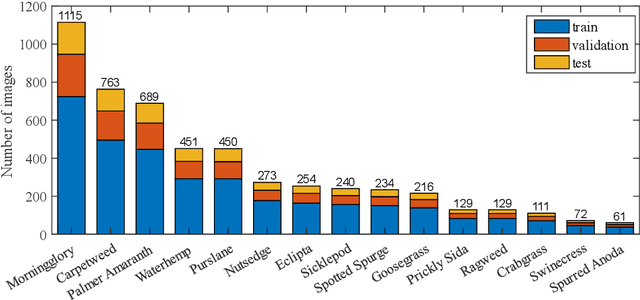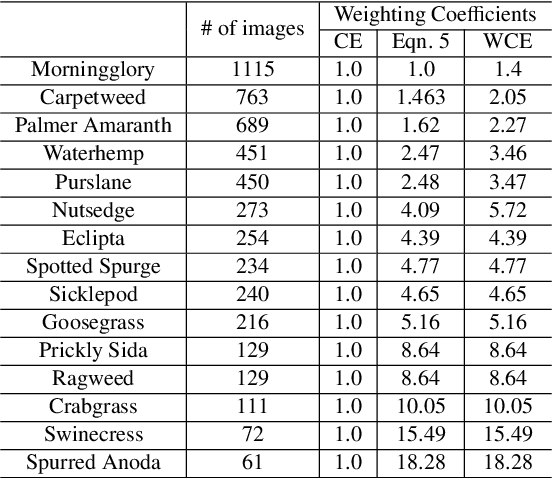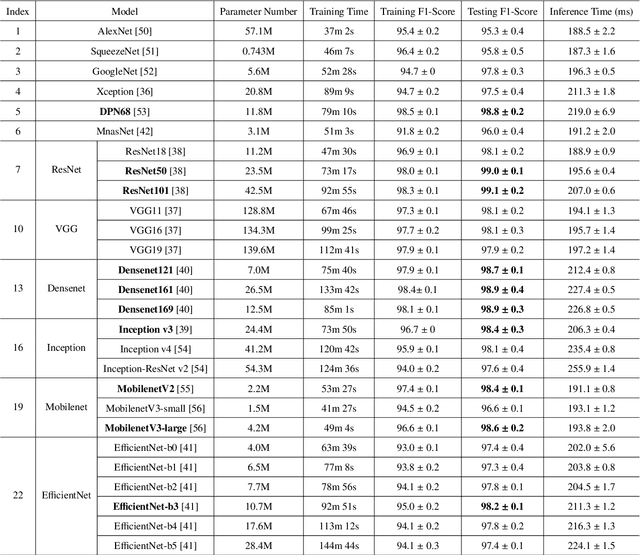Performance Evaluation of Deep Transfer Learning on Multiclass Identification of Common Weed Species in Cotton Production Systems
Paper and Code
Oct 11, 2021



Precision weed management offers a promising solution for sustainable cropping systems through the use of chemical-reduced/non-chemical robotic weeding techniques, which apply suitable control tactics to individual weeds. Therefore, accurate identification of weed species plays a crucial role in such systems to enable precise, individualized weed treatment. This paper makes a first comprehensive evaluation of deep transfer learning (DTL) for identifying common weeds specific to cotton production systems in southern United States. A new dataset for weed identification was created, consisting of 5187 color images of 15 weed classes collected under natural lighting conditions and at varied weed growth stages, in cotton fields during the 2020 and 2021 field seasons. We evaluated 27 state-of-the-art deep learning models through transfer learning and established an extensive benchmark for the considered weed identification task. DTL achieved high classification accuracy of F1 scores exceeding 95%, requiring reasonably short training time (less than 2.5 hours) across models. ResNet101 achieved the best F1-score of 99.1% whereas 14 out of the 27 models achieved F1 scores exceeding 98.0%. However, the performance on minority weed classes with few training samples was less satisfactory for models trained with a conventional, unweighted cross entropy loss function. To address this issue, a weighted cross entropy loss function was adopted, which achieved substantially improved accuracies for minority weed classes. Furthermore, a deep learning-based cosine similarity metrics was employed to analyze the similarity among weed classes, assisting in the interpretation of classifications. Both the codes for model benchmarking and the weed dataset are made publicly available, which expect to be be a valuable resource for future research in weed identification and beyond.
 Add to Chrome
Add to Chrome Add to Firefox
Add to Firefox Add to Edge
Add to Edge